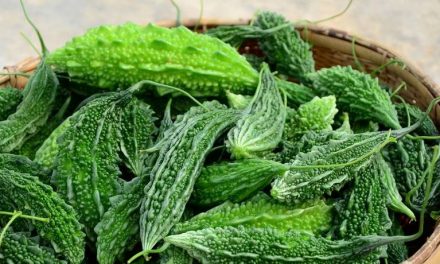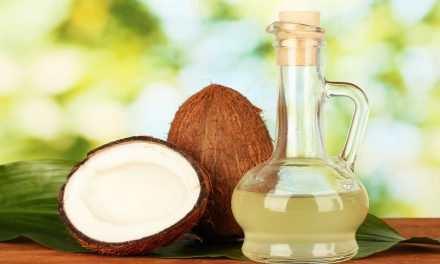Pregnancy is a wondrous time in a woman’s life. The precious nine months after conception have tremendous impact on the physical and mental wellbeing of the mother and child. One must aim to provide a caring and comforting surrounding at this time. The different phases of pregnancy are divided into trimesters, wherein the needs of the mother and developing fetus are very specific.
In the ancient holistic health system of Ayurveda there is a dedicated section regarding pregnancy care. This known as Garbhini Parichaya and has a month by month rendering of traditional care techniques pertaining to ahara (diet), vihara (lifestyle), nidra (sleep) and vichara (thinking). All of these affect maternal health, fetal development as well as lactation and the ability to recover swiftly after childbirth.
The diet is most central to pregnancy. As per Ayurveda the ahara-rasa or energy from the mother’s diet serves certain important functions. One is that the mother herself is nourished to sustain a nurturing womb. The second benefit is that the food aids the fetus to grow and third is the formation of milk in the breasts. Thus, pregnant women need a balanced diet with great nutritional value. Negligence may bear a hefty price as nutrient depravation during pregnancy can cause miscarriage, premature delivery and the birthing of even underweight malnourished infants.
The suggested Ayurveda diet is more or less in line with modern medicine recommended for pregnancy with high proteins, vitamins and minerals. A fundamental dietary rule is eating timely meals that are easy to digest. Food should be eaten warm after being freshly prepared. During the first trimester the fetus is in its formative state. During this time the embryo is nurtured directly through percolation or upsnehan. Hence, more liquid foods consisting of milk, soups, coconut water and juices are recommended. There are certain Ayurveda concoctions that are essential during pregnancy.
Warm milk and a light diet must be followed during the first month. Milk is an ideal food as it is a source of calcium, lactose and butter fat, along with proteins which have anabolic properties. In cases one doesn’t like the taste of milk then it can be flavored with a powder mix of cardamom, almond, dry ginger etc. Pregnant women should never be constipated and two glasses a day is ideal. Milk makes sure that this doesn’t happen.
During the second and third month, medicated milk is important as it comprises of life budding herbs such as vidari (morning glory), brahmi (bacopa), shatavari (asparagus) and yashtimadhu (licorice). The milk can be laced with honey and medicated ghee (grita), especially during the third month. One can also get powdered supplements with these herbs. Brahmi particularly is important as it is said to be a sustainer of life force and also calms the nerves. By the end of the first trimester the fetus depicts physical and sensory development. The heartbeat is audible and motor actions also get activated.
During the next trimester consisting of the fourth, fifth and sixth months, the food reaches the baby via the umbilical chord and not through percolation like before. A healthy diet such as rice, leafy vegetables, milk, medicated ghee, pulses, nuts etc. can be consumed. Fruits of yellow and orange color like gooseberry, apples, orange, carrots etc. can be enjoyed as well as salads or juices.
The fourth month is when the body tissues or dhatus are formed. It is at this time that one is advised to include more of unsalted butter and crystal sugar into the diet. Through the fifth month one should up the number of spoons of ghee to a minimum of at least 7-8 spoons. It should be unadulterated cow’s ghee. This is the stage of blood and muscle formation. In the sixth month the fatty tissue is formed. It’s ideal for medicated ghee with sweetened herbs like licorice and shatavari. This can be consumed early in the morning on an empty stomach. The same regimen can be continued through the first month of the next trimester i.e. the seventh month.
In the course of the seventh month the fetal growth is complete. The organs are defined and skin, nails and hair start to appear. The baby needs the proper nutrition even more at this stage to gain strength. Fat, salt and water can be lessened. Rice kanji with ghee is a superb diet at this time. Basil or tulsi which has anti-spasmodic properties can be used in garnishing food and in salads. One can also try other herbs like ginseng and sariba that act as mild diuretics and urinary antiseptics. From the fourth to the seventh month herbal supplements like guduchi and ashwagandha must be consumed by the mother. These fortify the embryo while strengthening the uterine muscles. They also prevent any kind of dangerous intrauterine growth retardation. Another popular medicinal supplement is kaunch beej or velvet bean.
By the eighth month the mother can consume sweet preparations of rice puddings, wheat vermicelli and semolina halwa. This kind of gruel can be eaten once a day. The pregnant lady can also indulge in 2-3 helpings of calcium rich foods every day. This includes soya beans, raisins, dates, green leafy veggies, guavas etc. The mother can also try out anuvasan basti, an herbal enema under the Panchakarma. This is important for the fetus to acquire a normal position and to attain a suitable state in preparation for labor.
Different types of ghee are an integral part of a pregnant women’s diet. Women can try phala sarpis, a type of medicated ghee concoction from the first month itself. One can also try dadimadi ghritam for growth of the fetus and kalyanaka gritam for mental stimulus of the baby in the womb. At the time of delivery sukhaprasava ghee is ideal as it helps in an easy delivery of the baby.
These are some of the amazing dietary secrets of 5,000 years of child bearing by strong and healthy women. Today, such kinds of herbal food concepts are quickly gaining popularity again due to the great healing significance attached.










